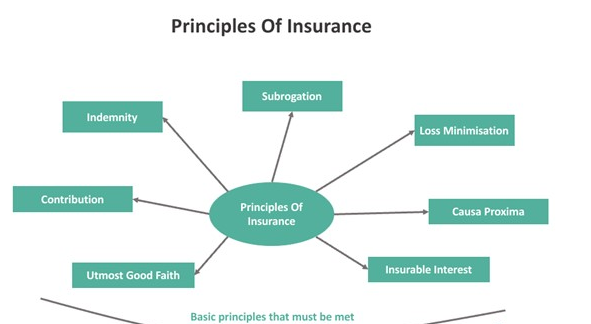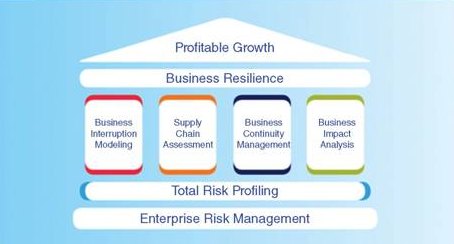UnitedHealth Group Incorporated, one of the largest healthcare and insurance companies in the world, offers comprehensive health insurance plans under its subsidiary, UnitedHealthcare (UHC). Founded in 1977, UHC has grown into a global healthcare and insurance powerhouse, serving millions of people across the United States and internationally. Its health insurance programs range from individual and family plans to employer-sponsored and government programs like Medicare and Medicaid.
With a strong emphasis on innovation, integrated healthcare solutions, and quality care, UHC has made significant strides in providing affordable and accessible healthcare to a wide range of individuals. This article will explore the various aspects of the UnitedHealthcare Insurance Program, its structure, benefits, challenges, and its overall role in the healthcare landscape.
1. Overview of UnitedHealthcare
History and Growth
UnitedHealthcare’s parent company, UnitedHealth Group, was initially founded as a healthcare management organization aimed at improving access to medical services. Over the years, the company has evolved into one of the largest providers of health insurance and managed healthcare services in the United States. With its comprehensive portfolio of health insurance products and services, UHC now provides coverage for more than 70 million Americans, making it the largest health insurer in the country.
UnitedHealthcare operates under two primary segments:
- UnitedHealthcare: The health insurance arm of the company, offering a wide array of health insurance products and services for individuals, families, employers, and government programs.
- Optum: A health services platform focusing on healthcare technology, data analytics, and pharmacy care services, helping UHC integrate care delivery and enhance customer experience.
The company has continually expanded its reach through acquisitions and partnerships, including the purchase of several healthcare technology and pharmaceutical service companies, further solidifying its presence in the healthcare market.
UnitedHealthcare’s Mission and Vision
UnitedHealthcare’s mission is “to help people live healthier lives and to help make the health system work better for everyone.” This reflects its commitment to improving healthcare quality, accessibility, and affordability for all individuals, regardless of their financial or social status. UHC aims to provide integrated, value-based care that improves health outcomes while controlling healthcare costs.
2. Types of Health Insurance Plans Offered by UnitedHealthcare
UnitedHealthcare offers a wide variety of health insurance plans designed to meet the diverse needs of individuals, families, and employers. These plans fall into several categories:
Individual and Family Plans
UnitedHealthcare offers health insurance plans for individuals and families, providing coverage for essential health benefits as required by the Affordable Care Act (ACA). These plans can be purchased through the Health Insurance Marketplace or directly from UHC. Key features include:
- Essential Health Benefits: All UHC individual and family plans cover the ten essential health benefits mandated by the ACA, including preventive care, hospitalization, prescription drugs, maternity and newborn care, mental health services, and pediatric services.
- Tiered Coverage: UHC offers plans at different levels—Bronze, Silver, Gold, and Platinum—each with varying premiums, deductibles, and coverage options. These tiers allow consumers to choose a plan that best suits their healthcare needs and budget.
- HMO, PPO, and EPO Plans: UHC offers different types of health plans based on network access. Health Maintenance Organization (HMO) plans require patients to choose a primary care physician (PCP) and get referrals to see specialists, while Preferred Provider Organization (PPO) plans offer more flexibility in choosing healthcare providers without needing referrals. Exclusive Provider Organization (EPO) plans offer in-network care but do not require a PCP or referrals.
Employer-Sponsored Health Insurance
UHC is a leading provider of employer-sponsored health insurance, covering millions of employees across the country. These group health plans are offered by employers to their employees and their families, providing comprehensive coverage for a wide range of healthcare services. Key components include:
- Flexible Plan Options: Employers can choose from a range of plan designs, including HMO, PPO, and high-deductible health plans (HDHPs) paired with Health Savings Accounts (HSAs). This flexibility allows employers to offer plans that match their workforce’s needs while managing costs.
- Wellness Programs: UHC’s employer-sponsored plans often include wellness programs that promote preventive care, chronic disease management, and healthy living. These programs offer resources such as health assessments, fitness tracking, and support for quitting smoking or managing weight.
- Telehealth Services: UHC integrates telehealth services into many of its employer-sponsored plans, giving employees the option to consult with healthcare providers remotely, which has become especially important in the wake of the COVID-19 pandemic.
Medicare Advantage Plans
UnitedHealthcare is one of the largest providers of Medicare Advantage (Part C) plans, offering a comprehensive range of health coverage options for seniors and individuals with disabilities who are eligible for Medicare. Medicare Advantage plans combine the benefits of Original Medicare (Parts A and B) with additional benefits such as prescription drug coverage, dental, vision, hearing, and wellness programs.
- Medicare Advantage HMO and PPO Plans: UHC offers both HMO and PPO options for Medicare Advantage enrollees. HMO plans typically require members to use healthcare providers within a designated network, while PPO plans offer more flexibility in choosing out-of-network providers.
- Medicare Part D Prescription Drug Plans: UHC also provides stand-alone Medicare Part D prescription drug plans, which help cover the cost of prescription medications for Medicare beneficiaries.
Medicaid and CHIP
UnitedHealthcare participates in government-sponsored programs like Medicaid and the Children’s Health Insurance Program (CHIP) in several states, providing health coverage to low-income individuals and families. UHC’s Medicaid plans cover a wide range of services, including doctor visits, hospital stays, prescription drugs, maternity and newborn care, mental health services, and preventive care.
- Medicaid Managed Care: UHC operates as a managed care organization (MCO) in many states, administering Medicaid benefits through contracts with state governments. UHC helps manage care delivery by coordinating with healthcare providers, ensuring that members receive necessary medical services and preventive care.
- Focus on Vulnerable Populations: UHC’s Medicaid programs are designed to address the unique needs of vulnerable populations, including children, individuals with disabilities, and pregnant women. The company works to improve access to care, reduce disparities in healthcare outcomes, and support community-based services.
Short-Term and Supplemental Health Insurance
In addition to traditional health insurance plans, UHC offers short-term health insurance plans for individuals who need temporary coverage, such as those between jobs or waiting for employer coverage to begin. These plans typically offer coverage for a limited period (up to 12 months in some states) and are designed to provide basic medical coverage, though they may not cover essential health benefits.
Supplemental health insurance options, such as dental, vision, and accident insurance, are also available through UHC. These plans can be purchased alongside a primary health insurance plan to provide additional coverage for specific healthcare needs.
3. Benefits of UnitedHealthcare Insurance Programs
1. Wide Network of Healthcare Providers
One of the key advantages of UHC’s health insurance plans is its extensive network of healthcare providers. UHC partners with over 1.3 million healthcare professionals and nearly 6,500 hospitals across the United States, offering members a broad choice of doctors, specialists, and hospitals. This wide network ensures that members can access the care they need, regardless of where they live.
2. Focus on Preventive Care
UnitedHealthcare emphasizes preventive care and wellness initiatives to improve health outcomes and reduce healthcare costs. Many of UHC’s health insurance plans offer free preventive services, such as annual physical exams, vaccinations, cancer screenings, and health assessments. UHC’s wellness programs, available to many policyholders, provide support for smoking cessation, weight loss, and managing chronic conditions like diabetes and hypertension.
3. Telehealth and Digital Health Tools
UHC has been at the forefront of integrating telehealth services into its health insurance programs. Through UHC’s telehealth platform, members can consult with healthcare providers via video calls, phone, or secure messaging. This service allows patients to receive medical advice, diagnoses, and treatment for common conditions without needing to visit a doctor’s office. Telehealth services have become increasingly popular, especially during the COVID-19 pandemic, and UHC has expanded its telehealth offerings to meet growing demand.
In addition to telehealth, UHC offers a variety of digital health tools that allow members to manage their healthcare needs from their smartphones or computers. The UHC app enables members to access their health plan information, review claims, find in-network providers, schedule appointments, and track their healthcare expenses.
4. Integrated Care and Coordination
UnitedHealthcare aims to provide integrated care by coordinating between different healthcare providers and services to improve the overall patient experience. Through its Optum division, UHC has access to healthcare analytics, pharmacy benefit management, and care coordination services, allowing for more efficient management of complex health conditions and improving outcomes for patients with chronic illnesses.
5. Prescription Drug Coverage
Most UHC plans include comprehensive prescription drug coverage, either as part of the health insurance plan or through stand-alone Medicare Part D plans. UHC’s partnership with OptumRx, a leading pharmacy benefit management company, ensures that members have access to affordable medications, including mail-order prescription services and a large network of retail pharmacies.
4. Challenges Facing UnitedHealthcare
Despite its many strengths, UnitedHealthcare faces several challenges in the evolving healthcare landscape. These challenges include rising healthcare costs, regulatory changes, and ensuring equitable access to healthcare for all populations.
1. Rising Healthcare Costs
The rising cost of healthcare services and prescription drugs is a significant challenge for UHC and the broader health insurance industry. As healthcare expenses continue to climb, UHC must balance offering affordable premiums while covering the increasing costs of medical care. This challenge is compounded by the aging population, as older adults typically require more frequent and expensive medical treatments.
2. Regulatory Changes and Compliance
UHC must navigate a complex and ever-changing regulatory environment, particularly as it pertains to government programs like Medicare and Medicaid. Changes in federal and state regulations can impact how UHC designs its health plans, sets premiums, and administers benefits. Additionally, UHC must ensure compliance with the ACA’s requirements, such as providing essential health benefits and adhering to rules regarding pre-existing conditions and lifetime coverage limits.
3. Addressing Health Disparities
While UHC strives to provide healthcare coverage for a diverse population, health disparities continue to exist, particularly among low-income and minority communities. Social determinants of health, such as income, education, and geographic location, play a significant role in individuals’ access to healthcare and health outcomes. UHC’s Medicaid and community-based programs aim to address these disparities, but overcoming systemic barriers to healthcare equity remains an ongoing challenge.
Conclusion
The United Health Care Insurance Program is a crucial player in the U.S. healthcare system, offering a wide range of health insurance plans designed to meet the needs of individuals, families, employers, and government programs. With a strong focus on preventive care, wellness, telehealth, and integrated care, UHC continues to innovate and evolve in response to the changing healthcare landscape.
While UHC faces challenges related to rising healthcare costs, regulatory changes, and health disparities, its commitment to providing affordable, accessible, and high-quality healthcare remains at the forefront of its mission. As the healthcare industry continues to evolve, UnitedHealthcare is likely to play a central role in shaping the future of health insurance and healthcare delivery in the United States.








